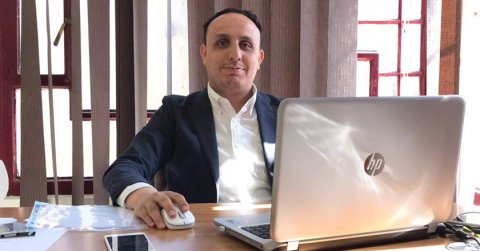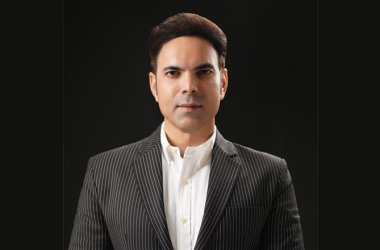
By Assoc. Prof. Dr. Omar H Salman, Network Department, Engineering College, AL-Iraqia University.
The world is undergoing a remarkable digital transformation that is changing every aspect of our lives. From education and health to commerce and governance, digital technologies create new possibilities and opportunities for people and businesses. Iraq is eager to join this global trend and modernise its economy and society through advanced digital technologies. The government’s announcement of a 5G rollout in the country soon is a welcome step in this direction.
However, the digital era also brings significant challenges and risks that can compromise the security, privacy, and integrity of data and systems. Cyberattacks can cause severe harm to individuals, organizations, and nations, affecting their reputation, operations, and even sovereignty. Therefore, cybersecurity is essential for the modern ICT-driven world, especially as the new generation of networks (5G) and the increased reliance on the internet in all sectors and industries create more vulnerabilities and expand the attack surface.
Cybersecurity is not only a defensive measure but also a strategic asset and a driver of socioeconomic progress. For Iraqi public and private organisations, safe and secure digital interactions can enhance the trust and confidence of users and customers, fostering innovation and competitiveness. It can also protect critical infrastructure and national assets from malicious actors, ensuring stability and security. Moreover, it can create new jobs and skills for Iraqi youth in the digital economy, contributing to the development and growth of the ICT sector and the digital economy.
Iraqi Prime Minister Mohammed Shiaa Al-Sudani strengthen the significance of cybersecurity. He also highlighted the establishment of a high-level cybersecurity committee to coordinate and intensify efforts among various relevant authorities. Cyber threats are becoming more sophisticated and widespread, and only dedicated teams armed with the latest technology, expertise and enforcement authority can effectively counter them. Cybersecurity laws also offer an opportunity to foster cooperation and collaboration among peer nations and create a more harmonious and trustworthy cyberspace while addressing the borderless nature of cybercrime.
Our country Iraq can benefit from the experience and best practices of other countries that have successfully implemented cybersecurity governance, such as Saudi Arabia and the UAE. While recognizing the specific circumstances of Iraqi society, there are universal principles that can guide us in crafting our cyber defence model.
Our country needs a robust and comprehensive cybersecurity strategy and framework to protect its digital assets and enable its digital transformation. To achieve this, Iraq should follow the best practices and standards of the international community, such as the GSMA Network Equipment Security Assurance Scheme (NESAS) and the OIC-CERT. NESAS is a global framework for assessing the security of network equipment products that support 5G and other mobile technologies. It is jointly defined by GSMA and 3GPP, the leading organizations for mobile communications. The framework provides a consistent and transparent way to evaluate the security of network equipment products and vendors, reducing the risks and costs of deploying 5G networks.
OIC-CERT is the Organization of Islamic Cooperation Computer Emergency Response Team for the Islamic world, which aims to improve the cybersecurity of the OIC member countries. OIC-CERT recently launched the Harmonised and Unified Cybersecurity Certification System for 5G (HUCCS), which provides a common mechanism for certifying and recognising the cybersecurity outcomes of 5G networks and services among the OIC member states. HUCCS helps to increase the efficiency and effectiveness of 5G solutions and the overall cybersecurity level of the OIC member countries and their stakeholders. HUCCS also defines the roles and responsibilities of the practitioners involved in the certification and recognition process, as well as the actions and approaches to maintain the system in the long term. Moreover, HUCCS offers a platform for the OIC member countries to enter new markets in partnership with other countries, leveraging HUCCS to reduce the barriers of entry, cost of business, and time to market.
In addition to the national cybersecurity governance, we can also leverage the collective capacity of the tech ecosystem. Iraq can significantly enhance its cybersecurity capabilities and resilience by building an open and collaborative cybersecurity ecosystem and cooperating with regional and international partners. Take Huawei as an example, as a global leading telecom solutions provider and active ICT contributor, Huawei has been proactively involved in the telecom cyber security standardization activities led by ITU-T, 3GPP, and IETF etc. and has joined security organisations such as FIRST, and partnered with mainstream security companies to ensure the cyber security of its customers and promote the healthy development of industries. recently Huawei signed an agreement with the ITU Arab Regional Cyber Security Center (ITU-ARCC) to promote public-private partnerships (PPPs) in cybersecurity jointly. By sharing its expertise and experience with its customers and partners, Huawei contributes to developing and adopting cybersecurity standards and best practices. Transparency, cooperation, openness is critical for the whole industry players to work together and face the common challenge from cybersecurity.
Cybersecurity is not only about technology but also about people. Currently, more and more universities pay attention to developing its people’s ICT skills and talents, especially the youth, to improve its cybersecurity posture. In this journey, Iraq can benefit from the support of its technology partners, who provide various initiatives to help Iraq develop its ICT and cybersecurity capabilities. school-enterprise collaboration is a good model to develop the next generation of ICT and cybersecurity leaders who can contribute to Iraq’s national goals and vision. For example, the Huawei ICT Academy, the Seeds for the Future Program, and the Huawei ICT Competition offer high-quality courses, training, certification, and opportunities for students and ICT practitioners to acquire the knowledge and skills needed for the digital age.
Cybersecurity is a key enabler and driver for Iraq’s digital transformation and development. Iraq should seize this opportunity and take action to enhance its cybersecurity in collaboration with its partners and stakeholders. Only then can we reap the benefits and opportunities of the digital age and achieve its full potential.





